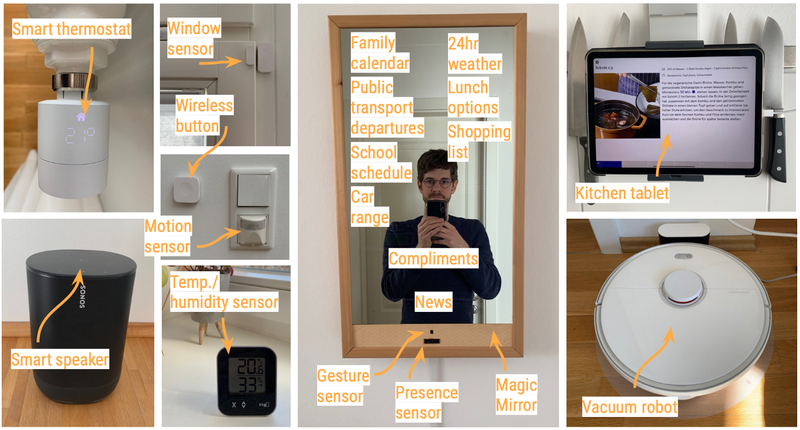Thomas Bachmann - Product Security Lead
We think that, whether you're hiking the Appalachian trail, learning a new skill or staying at home with your family, a sabbatical is often a critical opportunity to regain focus and clarity, relax, or check off a bucket-list item. However, a sabbatical can seem daunting, and "wasting" your sabbatical on a bad decision could be more frustrating than not going at all. We spoke with Thomas Bachmann - our Product Security Lead who recently took a month-long sabbatical - to gain from him some insights from his own experience.

What is your role at Mambu?
“I’ve been at Mambu for over 11 years now and had various roles during this time, from Software Developer to Team Lead of a small development team, leading internal IT, being Mambu’s Internal Data Protection Officer, to now Product Security Lead. As Product Security Lead I help the business transition from a single and central security team to build mature, specialised security teams in different technical domains, and I am responsible for product security concerns across multiple product areas.”
What made you decide to take a paid sabbatical and how did your family and friends react when you told them about this?
“In April 2021 Mambu leadership announced that all team members can enjoy a paid one month sabbatical every 5 years. I felt this is a nice way of appreciating my loyalty and I could make use of it to recharge, spend more time with my family, and dedicate time to some personal projects. Most of my family and friends were very surprised that a company would offer such a benefit. They were happy for me and wanted to know what I planned to do during that time.”
What was the original plan for your sabbatical month? Did you stick to it?
“My original plan was to take an extra vacation with my daughter to go skiing in the Bavarian Forest during her winter break, and we stuck to that. Returning home my daughter got a cold, so I stayed home with her and we spent more time together - which was great. My plans for the other weeks were to progress on my smart home project and learn the basics of how to play Boogie Woogie on the piano, which I accomplished as well, but not as extensively as I originally planned.
I also used some time to study security-related topics that I was interested in and could benefit me at work, like security program management or newly published security guidelines (2022 version of ISO 27002 to be precise).”
How did the sabbatical impact the work of your team?
“When I took my month off, I was transitioning to a new role. I made sure that everyone was aware of my time off and who to contact instead, and as part of the role transition I handed over all previous responsibilities before I left. This allowed me to start fresh into my new role upon return. There was only one smaller occasion where my input was requested during my time off, in order to not delay a global HR initiative. Other than that I was very proud of how well my teams handled things during my absence, and briefed me upon my return on what I had missed.”
Can you share three lessons you've learned from your sabbatical month?
“Taking a month off allowed me to look at the bigger picture and focus on the most impactful strategic initiatives. As a Team Lead, being detached from day-to-day operational work is something I’ll try to embed in my work routine going forward. Similar to Bill Gates’ famous think week.
Normally we’d go on vacation as a complete family. As my wife couldn’t take vacation at the same time as my sabbatical, but my daughter had a winter break, I decided to go on a vacation just with my daughter. This was a great experience that I otherwise would not even have considered. Having such extraordinary situations like a full month off, pushed me out of my comfort zone, which is great to achieve personal growth.
Your body feels the time off. I was very surprised when I got a notification from my smart watch that there was a new trend in my resting heart rate. It was on average about 10 BPM lower than normal."
What would you say to those planning on taking a sabbatical month?
“Inform your team early and remind them regularly, plan hand-overs of on-going tasks and responsibilities, and if you expect many inquiries in the meantime communicate how you will respond to them. Managing expectations upfront I believe really helps both sides.”
How was returning to work after your break?
“I felt very relaxed and energised. As I chose to still check my emails and Slack while on sabbatical, I wasn’t overwhelmed with lots of new information after my return, but had a clear and manageable action plan in front of me. I also applied my general vacation practice here, of not planning any time-consuming work in the first two weeks (half of the vacation time) after my return, to be able to follow up with tasks that were assigned to me in the meantime. This rule-of-thumb works well for me as I know on average how much time I need to reserve to support others, and how much I can spend on my own initiatives.”
If you could do it all again, would you do anything differently?
I don’t plan to leave Mambu and I hope to be able to take my next sabbatical month in 2027. As it is a long time until then I cannot foresee how I or the world will change, but I might go on a longer vacation or dedicate some time to volunteer work in my community, which I had planned this time as well but didn’t have enough capacity in the end.
In lieu of a recap
The idea for sabbatical has been growing inside Mambu for a long time, and we never lost faith in its potential to help all of us find a better balance. Watching the sabbatical becoming a real benefit for Mambu, and seeing it reshape the employee experience, is definitely a fantastic reward for us. But that’s far from our last word when it comes to building a modern organisation and creating a culture focused on balance, inclusion, bravery and innovation. We may just be starting out—but we’re here to stay and continue disrupting the norms.
Want to join us? Click here to find out how you can become a Mambuvian.



